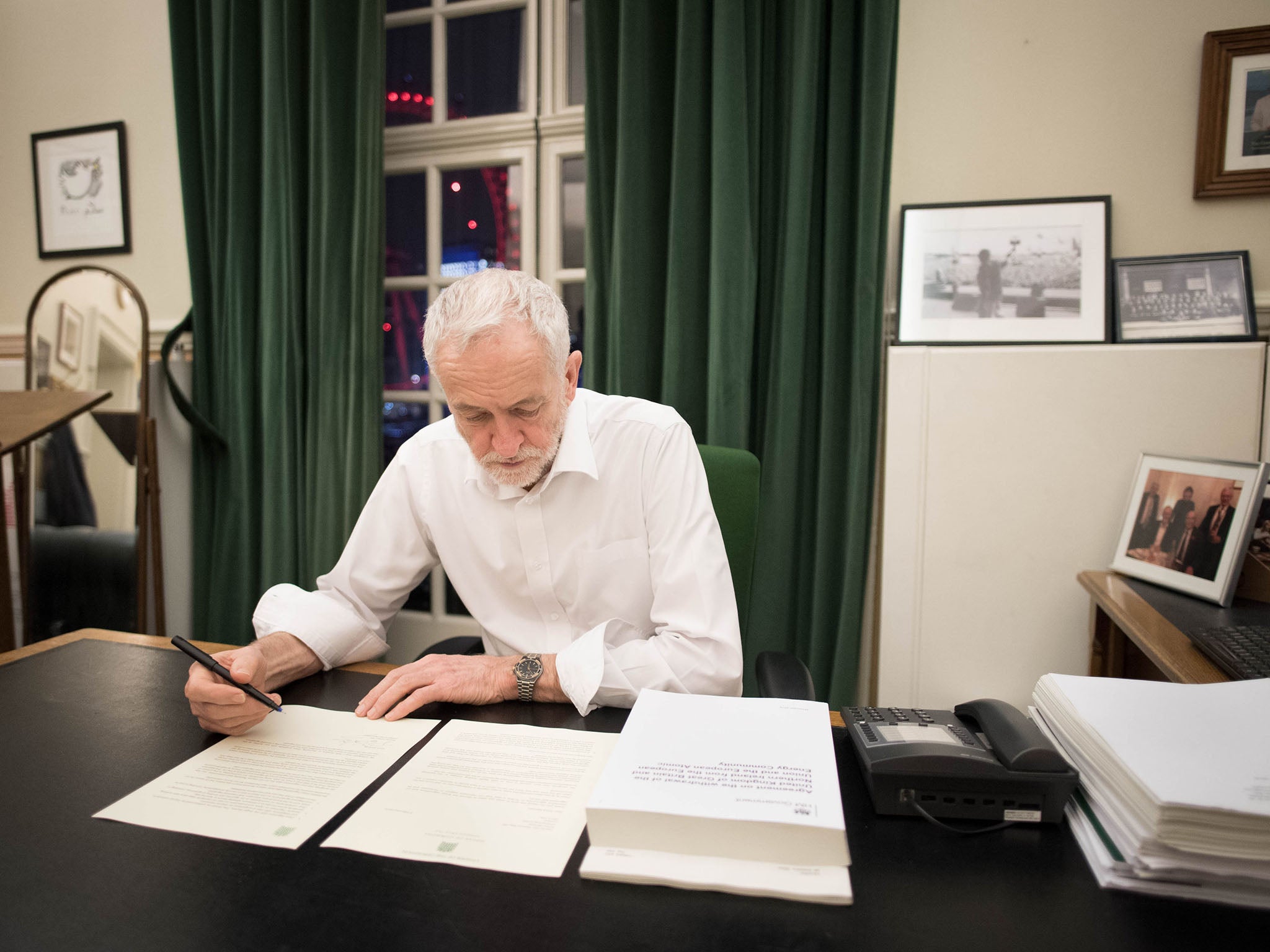Did Jeremy Corbyn’s letter to Theresa May really rule out Labour’s backing for a Final Say?
Analysis: The Labour leader is still trying to balance on a knife edge to avoid alienating the different Brexit factions in his party, says Lizzy Buchan


Jeremy Corbyn set hares running this week when he wrote a letter to Theresa May laying out Labour’s terms for supporting her Brexit deal.
His intervention took many in Westminster by surprise, as all eyes were on Brussels, where European Council president Donald Tusk was busy stoking Brexiteer fury by claiming there was a “special place in hell” for politicians who botch Britain’s exit from the bloc.
But the letter caused a major stir. Until now, Labour has said it will oppose any Brexit deal that fails to meet its “six tests”, which were widely regarded as being pretty much impossible to achieve.
The party has now dropped its demand to secure “the exact-same benefits” as the UK’s membership of the single market and the customs union.
The most significant thing about the letter is that it is the first time Labour has explicitly said it could support a Brexit deal, also assuming that Brexit is definitely going to happen.
The letter was also designed to be a serious offer to the prime minister, who is struggling to find a way to solve the impasse around the Irish backstop.
The EU certainly took it as such, offering a warm response to the proposals, which were said to have been developed by Sir Keir Starmer after close contact with Brussels.
However, the letter dismayed those in the pro-EU wing of Labour, as it made no mention of the prospect of a Final Say referendum.
Some MPs had hoped that the leadership was inching towards declaring Labour’s support for a fresh vote, a move that could significantly tip the scales in favour of another poll.
Labour’s official position is that a general election is the best outcome if parliament rejects a deal or talks end in no deal but “if we cannot get a general election Labour must support all options remaining on the table, including campaigning for a public vote.”

Ms May’s victory in the recent confidence vote in her government dampened Labour hopes of a general election, raising the expectation in some quarters that Labour could be backed into supporting a second referendum.
Tensions erupted in the wake of the letter, with several anti-Brexit MPs threatening to quit, prompting Mr Corbyn to write directly to party members to insist that party backing for a referendum remained an option.
So, does the letter really mean Labour has taken a Final Say vote off the table?
Vocal Corbyn critic Owen Smith, who is among the MPs threatening to quit, said the leadership was “rolling the pitch” to back a Brexit deal, while others said Labour members were being betrayed by the move.
Sir Keir tried to quell the anger, saying a second referendum is still on the table; however, he is regarded as more favourable to the idea than other members of Labour’s top team.
John McDonnell said the prime minister would have a “secure” parliamentary majority if she backed Labour’s “traditional British compromise”, but he said a second referendum was still on the table if an agreement could not be reached.
In short, it seems Mr Corbyn is still trying to balance on a knife edge to avoid alienating the different Brexit factions in his party.
He has ditched the most impossible of Labour’s tests but the aims remain similar, including a permanent customs union – something Ms May is unlikely to accept.
Mr Corbyn is appealing more to Tory rebels than Labour Remainers with this plan, and it appears that the long-time Eurosceptic is no closer to supporting a second referendum.
Got an unanswered question about Brexit? Send it to editor@independent.co.uk and we’ll do our best to supply an answer in our Brexit Explained series.
Join our commenting forum
Join thought-provoking conversations, follow other Independent readers and see their replies
Comments
Bookmark popover
Removed from bookmarks